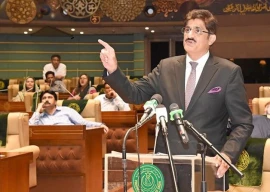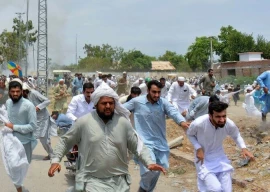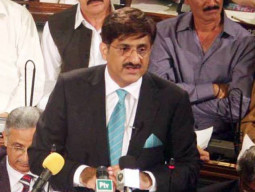
Pakistan is in the spotlight for the largest number of out of school children (26 million) and millions not learning the basics (ASER 2010-2023). Deficits of access and quality morph into an equity gap with gender and generational impact. The Prime Minister of Pakistan within 9 weeks of stepping into office declared a National Education Emergency (May 8, 2024) followed by 14 time-bound directives through mobilisation of ministries of Finance, Health and Poverty Alleviation and Social Safety (PASS) as well as BISP, National Vocational Technical Training Commission (NAVTCC), SBP, SECP, etc. The Ministry of Federal Education & Professional Training (MoFE&PT) is tasked with coordination and enabling provincial consensus as education is fully devolved for policy, planning, curriculum, financing and implementation. There is déjà vu regarding the ‘Education Emergency Encounters’ in Pakistan; what will be different this time around? Education is a wicked problem, multiplied with a runaway population growth rate: 7 million babies are born annually. It is the biggest elephant in the room. The Ed-Pop debacle is a ‘losing battle’ needing an irreversible national action plan. Education can never be a single sector performer; its transformation needs strong ‘multi-sectoralism’ for sustainable nation building and survival.
The combined national education budget for the fiscal year 2024-25 has risen from a meagre 1.5% (2023-24) to 1.9%. The commitment is to raise GDP allocations to 4% by 2029. Will this happen uniformly? Will there be budget trackers for citizens to witness the punishing increased taxes on salaried class translate into visible improvements in public education? Will the Rs25 billion Fund for OOSC and foundational learning translate into accountable actions? These questions need capable manager-leaders steering implementation with precision.
In 40 years of enduring service as an apprentice, researcher, policy influencer and service delivery partner, it is rare to watch a senior bureaucrat visiting schools daily and on holidays, overseeing transformative excellence in public sector schools outshining private sector counterparts. Motivated secretaries, combining vision, learning, evidence, application with responsibility for scalable service delivery through systems and design thinking is the need of the hour. One has witnessed many secretaries making a few school visits and giving up, overwhelmed by the scale of the malaise in huge public sector systems. But the top civil servant at MoFE&PT is different. He is a visionary invested in partnerships, teams and delivery science. Building boldly on foundational learning reforms initiated by a capable predecessor, he is walking the talk of possibilities from a system’s perspective. He is open to ideas that work from neighbouring countries, engaging in visible modelling for bold social and economic development in Pakistan. We are witnessing provincial counterparts burning the midnight oil for scalable comprehensive education reforms, to fasttrack evidence backed implementation with fiscal space to accelerate actions for access, quality and equity!
What do reforms at Scale, Speed and Breadth mean in the Islamabad Capital Territory (ICT)? Scale is 432 schools/colleges of the Federal Directorate of Education (FDE), with 250,000 enrolment; 402 Basic Education Centres (BECs), NCHD and National Education Foundation schools and 287 TVET/NVTCC units. Reforms are yet to address 1,200 private sector schools and madaris registered in ICT. Spurring reforms at a dizzying pace since March 2024, the MoFEPT has been implementing reforms with accountable public information on a daily basis. This includes: a) an enabling conducive learning environment with welcoming classrooms dedicated to teaching-learning, ECCE in safe holistic rooms, science and state of the art computer/tech, entrepreneurship labs, libraries with open shelf library books mobilised by the National Book Foundation, health and mother and child rooms, revamped sports facilities indoor and outdoor along with free sportswear to students; b) waiving requirement for Birth Registration/bay forms for school enrolment (birth registration is under 50% in Pakistan); c) merit-based teacher recruitment and continuous workforce development including tech based certification; d) devolved powers to school leaders for recruitment, budget utilisation for school based reforms/innovations; e) leadership training and acknowledgement of high performing teachers; f) health/school meals nutrition for improved Body Mass Index (BMI) offsetting stunting for learning outcomes; g) pink buses for transporting girls from rural to urban high schools/colleges in ICT; h) schools in second shifts to admit OOSC/transgenders/upgrade post primary enrolment; i) assessments reforms from summative to formative and hybrid; j) TEVT/technical vocational programmes through NAVTCC and in high schools; k) institutional-programme public private partnerships (public/private/development partners) mobilised for foundational learning; reading hour /libraries; STEAM, EdTech/AI; climate change, mental health, career counseling; ECCE; inclusion/dyslexia; teacher training; play-based learning/parenting and learning festivals/book fairs; l) two week Summer Fiesta during summer vacation with a range of soft and hard skills including vocational livelihood programmes for primary, middle and secondary students through crowd-sourced partnerships; m) mobilising the Federal Board of Secondary & Intermediate Education (FBISE) to lead science and maths Olympiads and sports according to their mandate, etc.
MofE&PT has all its affiliate bodies running in high gear providing timely data on core indicators and learning by the Pakistan Institute of Education (PIE) and the newly established Pakistan Foundational Learning (PFL) Hub. Many initiatives have been demonstrated through mobilisation of initial investment from private investors as ‘show and tell’ to the conservative public sector financial bosses for costing the models and proof of concept for outcomes-based financing of public goods. This approach is mobilising resources creatively with fungibility in public finance. Imaginative financing is a long overdue public sector reform. A delivery unit has been established under the Secretary at MoFEPT to track and steer targeted implementation. ICT may become a unit of high learning outcomes; it may well be Pakistan’s Sobral as senior education leaders from Pakistan witnessed in Brazil (2022). In ICT, the Prime Minister, the Minister and the Secretary Education, partner ministries, experts and citizens are working together to show what works for education and learning.
Will the reforms at scale and speed in ICT be adopted as a model by the provinces? Can scale be managed through local decentralised units with distributed leadership in 400 schools (+/-) for high performance? Will the challenge of reaching the last-mile students with disability, minority groups, displaced and transgenders be achieved at systems level? Can we achieve targets for 25 A and SDG 4 extending entitlements with capabilities? Finally, will the extreme challenge of reversing population growth rates be included in the PM’s directives for the Education Emergency to achieve sustainable human development in Pakistan?














COMMENTS
Comments are moderated and generally will be posted if they are on-topic and not abusive.
For more information, please see our Comments FAQ